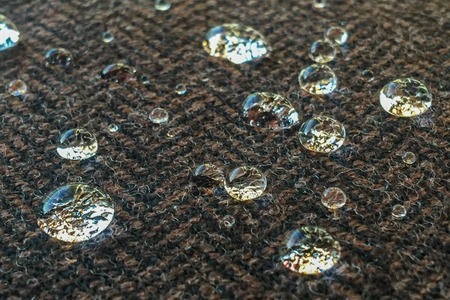Textile companies filing for patents to maintain their market
YarnsandFibers News Bureau 2015-08-21 10:00:00 – MumbaiTop textile companies to enhance export market share have started spending on research and development (R&D) to come out with newer products as they feel it is the only way to keep their market and patents help to give their innovations longevity as replicas don’t get created and the innovations can take their business to the next level and also give the companies high- margin products.
Welspun India Ltd, manufacturer of towels for Wimbledon, has applied for six patents in Europe, the US, Brazil, China, Korea and Australia for its creations such as natural finish fabric, ergonomics mattress pad and eco-dry towels that use little water during washing.
Two patents have already come to Welspun for Hygrocotton that has a hollow core for fluffiness, temperature control and moisture wicking from the UK and the US in the past two years. Likewise, Indo Count Industries Ltd has applied for a handful of patents mostly in the US and one patent was received last year.
Dipali Goenka, executive director at Welspun India said that USA constitutes about one-third of the global market in India and they have a level playing field and India is best placed to serve this market.
Welspun have been able to continuously increase their market share, especially in cotton home textiles and they have a bigger market share than China or Pakistan in key products like towels and sheets.
They have the potential to increase penetration in key categories. Europe also constitutes about one-third of the global market and India stands in a competitive position in spite of duty disadvantage.
According to analysts, focus on innovation by the new textile companies coincided with the abolishment of the global textile quotas in 2005 as well as the government’s technology upgradation fund scheme (TUFS), which gave them a boost.
TUFS, which ensured cheap loans for revamp by the textile companies, was designed to make them capable for exports and also create employment.
However it have been noticed that budgets for R&D run high in these companies—Welspun spent 5.4% of its latest net profit on R&D, while RSWM Ltd—a supplier to some of the old established brands such as Raymond, Siyaram, Bombay Rayon, Arvind, Raymond UCO Denim— spent 12% of its latest net profit into R&D.
Trident India expect their revenues to grow at a CAGR (compounded annual growth rate) of 20% for the next two-three years. In towels, they expect a revenue growth of 25% CAGR in the next two-three years. There is now a shift in the focus of the Indian textile industry to innovation. There are towels which provide high water absorbency, some are anti-microbial which prevents odour-causing bacteria and microbes, benzoyl peroxide- proof (which prevents discoloring), fade-resistant towels which do not fade even after several washing, and aroma towels.
According K.K. Lalpuria, executive director at Indo Count, companies have also tapped overseas talent for their innovation, they have a full fledged product development and design team in India and overseas. Normally the patents are for 20 years, so they have a long span to make use these licences.
Market Intelligence
Ask for free sample Report

experience
Customer Base
dedicated team
Countries Served Worldwide









